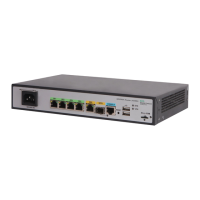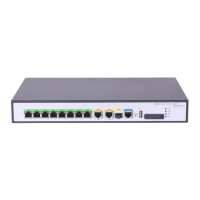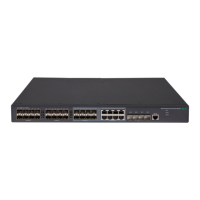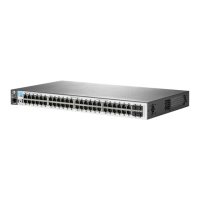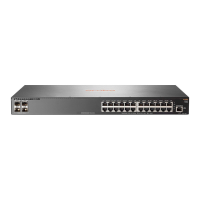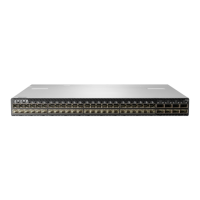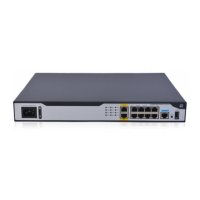99
You do not want the device to be synchronized by the peer device in the subnet corresponding
to the interface.
Examples
# Disable GigabitEthernet 1/0/1 from receiving NTP messages.
<Sysname> system-view
[Sysname] interface gigabitethernet 1/0/1
[Sysname-GigabitEthernet1/0/1] undo ntp-service inboundenable
ntp-service ipv6 acl
Use ntp-service ipv6 acl to configure the right for the peer devices to access the IPv6 NTP services
of the local device.
Use undo ntp-service ipv6 acl to remove the configured IPv6 NTP service access right.
Syntax
ntp-service ipv6 { peer |query | server | synchronization } acl ipv6-acl-number
undo ntp-service ipv6 { peer |query | server | synchronization } [ acl ipv6-acl-number ]
Default
The right for the peer devices to access the IPv6 NTP services on the local device is peer.
Views
System view
Predefined user roes
network-admin
Parameters
peer: Allows time requests and NTP control queries (such as alarms, authentication status, and time
server information) and allows the local device to synchronize itself to a peer device.
query: Allows only NTP control queries from a peer device to the local device.
server: Allows time requests and NTP control queries, but does not allow the local device to
synchronize itself to a peer device.
synchronization: Allows only time requests from a system whose address passes the access list
criteria.
ipv6-acl-number: Specifies an IPv6 ACL by its number. The peer devices that match the ACL have
the access right specified in the command. The ipv6-acl-number argument represents an IPv6 basic
ACL number in the range of 2000 to 2999.
Usage guidelines
When the device receives an IPv6 NTP request, it matches the request with the access rights in the
order from the least restrictive to the most restrictive: peer, server, synchronization, and query.
If no IPv6 NTP access control is configured, the peer access right applies.
If the IP address of the peer device matches a permit statement in an IPv6 ACL, the access
right is granted to the peer device. If a deny statement or no IPv6 ACL is matched, no access
right is granted.
If no IPv6 ACL is specified for an access right or the IPv6 ACL specified for the access right is
not created, the access right is not granted.
If none of the IPv6 ACLs specified for the access rights is created, the peer access right
applies.
